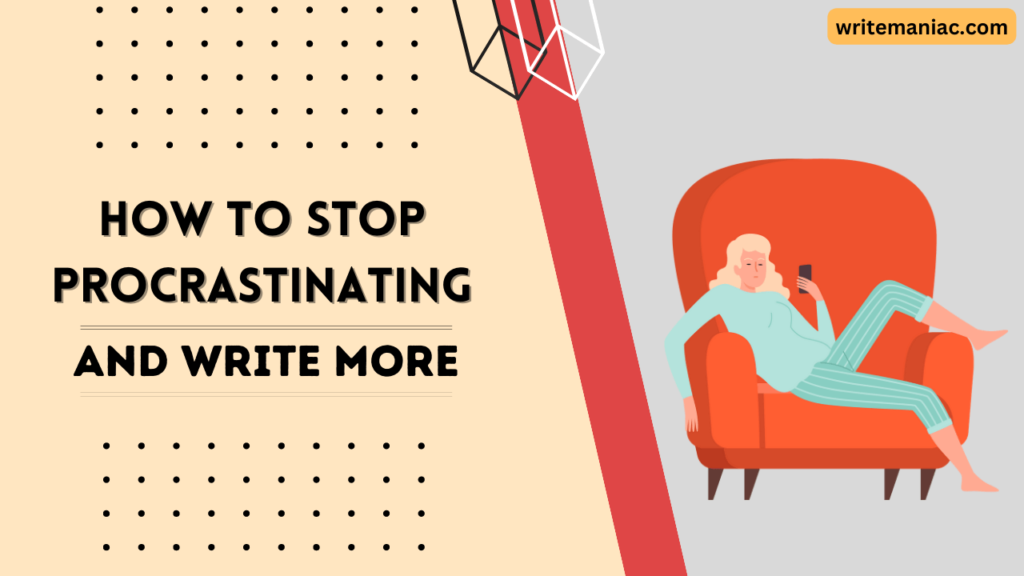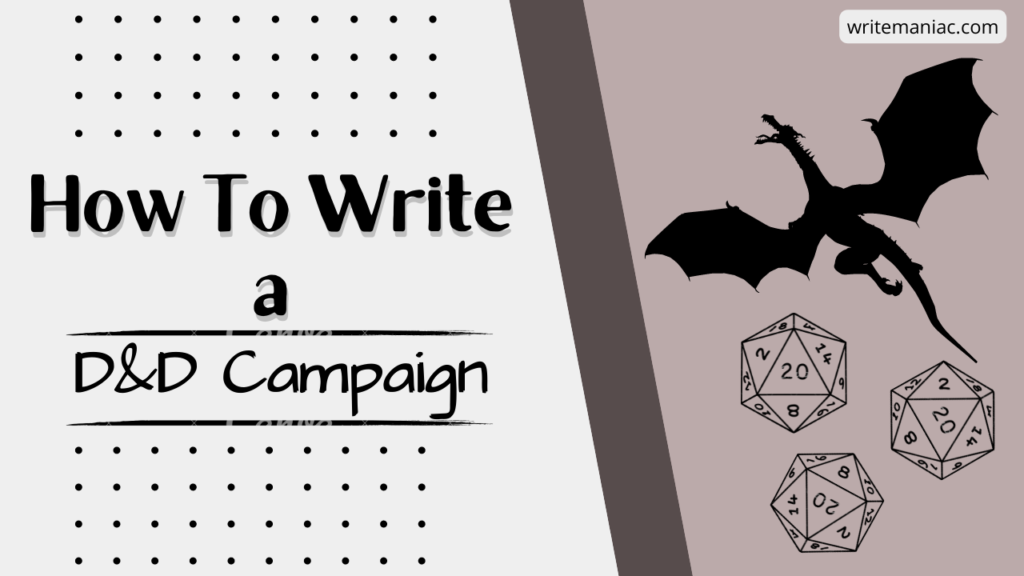
Writing a D&D campaign from scratch can be very entertaining. But it can also be very intimidating if you are new to this. Well, don’t worry—I have some exciting tips to share about how to write a D&D campaign from scratch.
If you want to be a Dungeon Master(DM) of your Dungeon and Dragons campaign, it will require some effort. The game Dungeons and Dragons offer a world full of possibilities.
If you have good imagination skills then this is precisely what you’ll enjoy creating as a Dungeon Master!
It can be very entertaining to create a D&D campaign—because as an author you can create realistic and fantastic adventures from medieval to futuristic worlds. You can create fantasy worlds of any era and on any continent as well.
This article will cover everything that’s required to help you start writing your own D&D campaign—especially if you are new to this.
I will try to cover the basics to advanced levels of creating a D&D campaign.
At first, I will start with the basics of the D&D game concept and then go into the nitty gritty details, as you are here—I’ll assume you already will know this part but in case you are in a hurry I’m putting up a quick summary of the article to help you understand the core part of the article better.
I’ll simply mention the steps to summarize writing a d&d campaign—the details will be discussed below.
Basically, the first step to writing your D&D campaign is choosing a theme, then you have to prepare and plan the outline of your story, the most important part is preparing the campaign starter as this will create the base of your campaign and hook the players.
Don’t forget to plan your maps and locations—however, it doesn’t have to be extremely detailed, come up with some interesting NPC with good backstory plus interactions and map locations.
Allow the players to build and co-create the world and plot alongside you—so you need to be flexible enough to change the campaign on the go if necessary, and keep some secrets and interesting battles with rewards to make the game more interesting.
Try to plan more than one ending and create more possibilities, get inspired by more experienced Dungeon Masters, and read books that will help you inspire and write your D&D campaigns.
Okay so with the summary out of the way—let’s dive in with the details. I will also include some important tips and dos and don’ts as well—so make sure to read to the end if you want to learn all of these! Now, let’s begin!
Dungeons and Dragons Basics
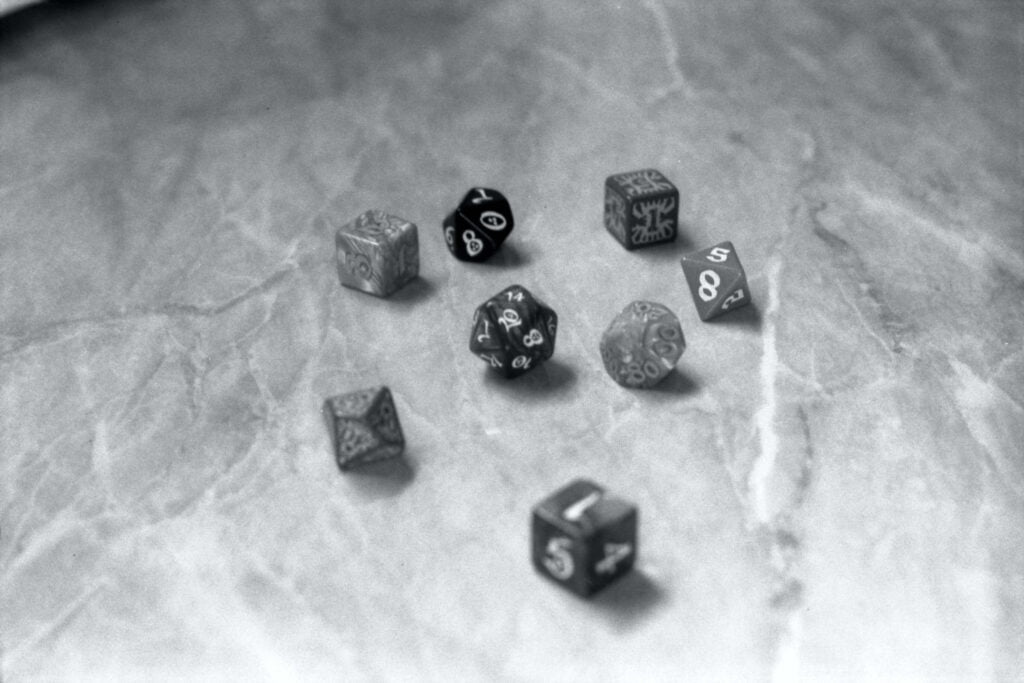
As I’ve told you, before starting with the steps, I want to explain the basic questions as well for newcomers to this game. If you are only interested in learning the steps and tips—you can skip this part and jump to the next heading using the table of contents!
D&D or Dungeons and Dragons is a fantasy role-playing tabletop game that was first created in 1974.
The game itself is very famous and occurs in TV shows persistently. It’s a game about telling stories and having fun with your friends.
There is a Dungeon Master who will create the backstory and settings of the campaign such as the premise, maps and locations, exciting NPC( Non-player characters), loots, treasures, and boss battles to help the story progress.
Dungeons & Dragons campaigns can be of various lengths, some can unfold in a few days and others can also take more time up to a month or even a year!
However, as a beginner, you won’t have to write a campaign that’s too long—I’d suggest starting with smaller campaigns with four to five sessions and then once you have gained more experience as a Dungeon Master you can aim for longer game sessions.
D&D consists of three pillars of gameplay—exploration, interaction, and combat. Exploration and interaction with the NPCs and other players make the game overflow with flavor and more interesting!
Combats are needed to defeat opponents and accomplish certain objectives of the player or party.
As the basics are done—now let’s start with the steps of writing your first D&D campaign!
How To Write a D&D Campaign (9 Steps Plus Extra Tips)
Get ready for the steps on writing a good d&d campaign even if you didn’t write one before!
1. Start With Choosing a Theme
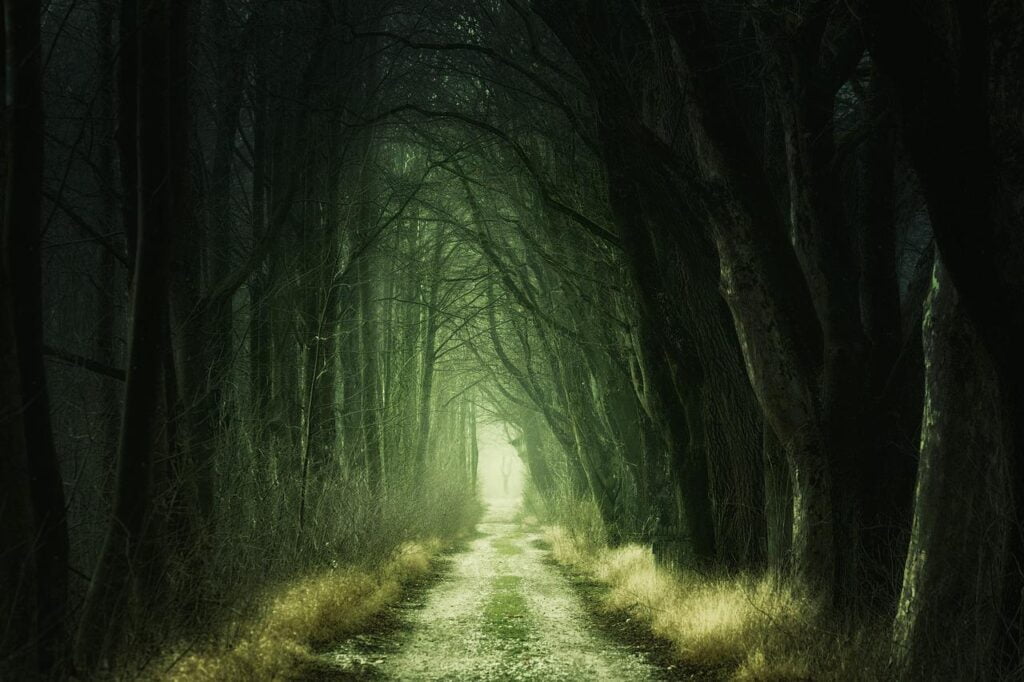
Similar to writing fiction, start by choosing a theme for your D&D campaign. Some examples could be mystery-related campaigns, medieval-themed campaigns, aliens, or even Cyberpunk themed campaigns.
Your imagination will play a great role here. If you have great imagination skills, you could go with any kind of theme you want!
2. Develop Your Campaign Premise
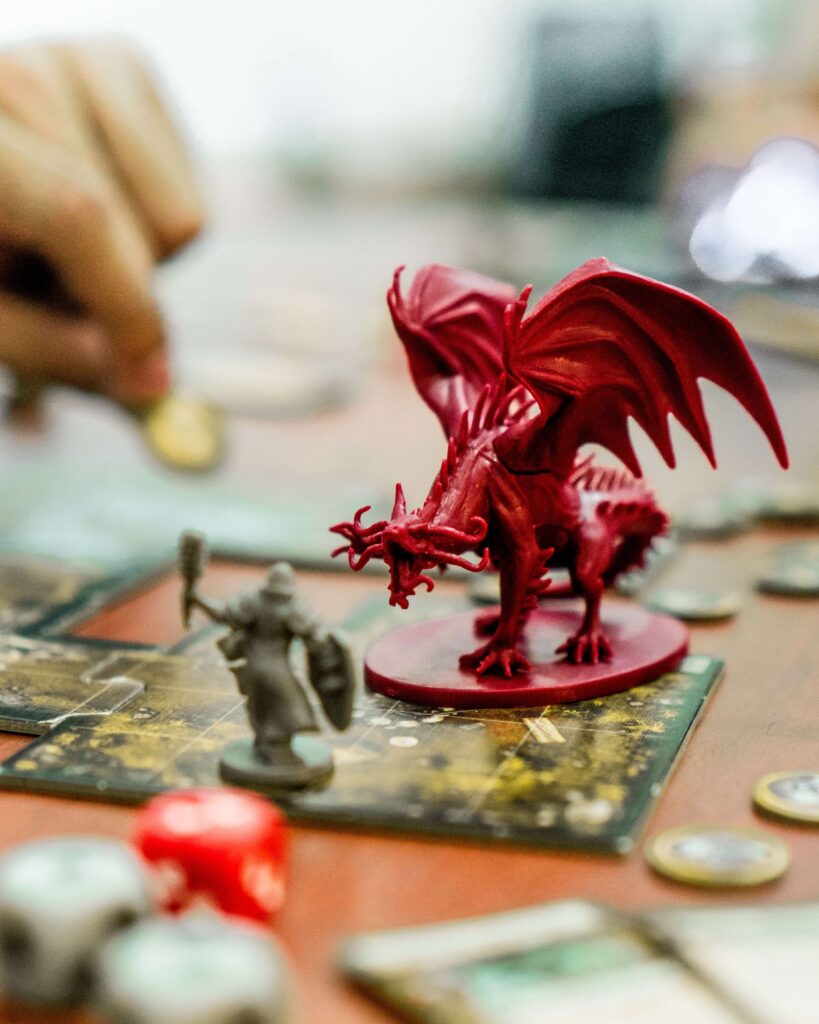
The campaign premise is like the main guide to your campaign. It’s like a short summary of the story of your entire campaign.
Developing the premise can include things like the problems the players will solve, where the campaign will take place, the antagonists of the story, deadlines, and penalties.
This is basically the guidance of where you want to go with the story. Even if it’s the players’ actions that complete most of the events that are happening in the game, having a premise will help a lot to guide you as a DM.
3. Outline Your Campaign
With the premise being sorted out, it’s time to start outlining your campaign. In an adventure game, every choice the player or the party makes influences the next thing that’s going to happen.
So, try to plan out what choices will lead to which possible outcomes and endings. You should offer different choices to the party and then plan further development for each of the choices.
4. Plan the Campaign World Map
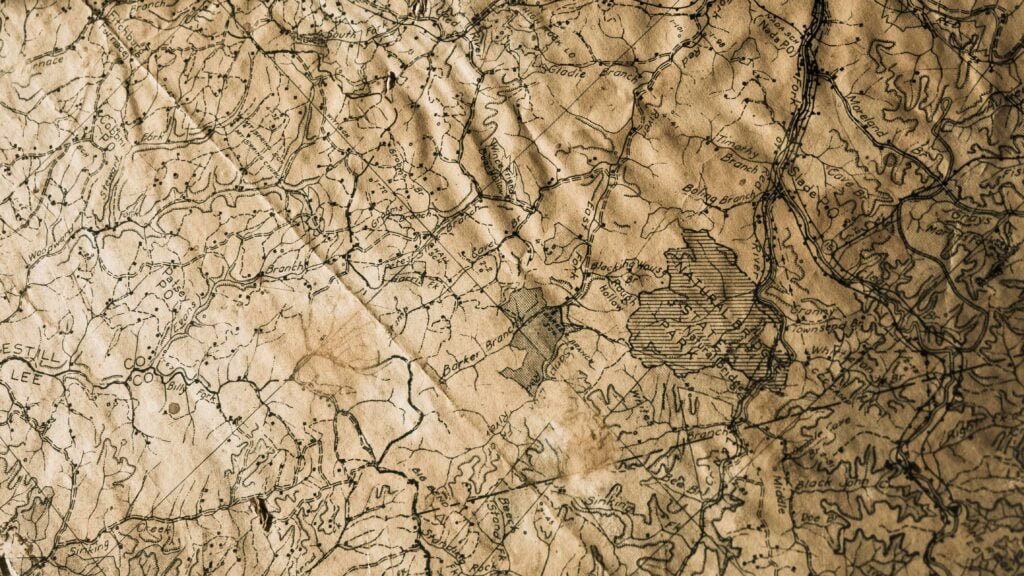
Planning the campaign map is also an interesting and fun part of creating a D&D campaign. As you have already outlined our campaign and you know your premise now it’s time to figure out what will the players encounter, where the monsters will be located, the NPCs, etc.
Your map should contain interesting locations and secrets which I will discuss in the next steps as well. Mark the locations of monsters, treasures, tokens, combat points, etc but it doesn’t need to be too detailed.
5. Interesting NPCs and Locations
Keep in mind that the first session does have to be interesting as it will help to grab the players’ attention.
After you share the backstory of the characters you should make your party go through some serious interesting actions to make them excited to play more.
Interesting encounters with NPCs will make it more enjoyable and less boring—the same with interesting locations that have extra secrets and rewards. So, make sure to include NPCs that will give the party good choices and interactions.
6. Allow Other Players To Create the World Alongside You
You could design every inch of your campaign world but it would be more interesting if you let the players build the world with you. Let them voice their choices so the players can also co-create the campaign with you.
This will make your campaign more flexible and lead to different unexpected events happening which will make the adventure more enjoyable.
If your players decide to talk to random people you can ask the player to describe the person at first and then you can use these random encounters to come up with the next interesting events—this will make your campaign feel more organic.
7. Keep Some Secrets and Interesting Battles With Rewards

Never give the answer away immediately, let the players think for a bit. This is similar to writing a compelling adventure novel. Some mystery and suspense will make your campaign more enjoyable.
Your players will have to work to find out the mystery behind the events that are happening around them. This is always more enjoyable than just giving out plain answers to everything right away.
Some exciting battles here and there will make the game less boring. This will help grab the player’s attention as well. So definitely keep in mind to include some boss battles and monster battles with some good rewards and loot.
8. Plan the Ending but Be Flexible Getting There

Just like planning the beginning of your campaign, you should also plan the ending. But don’t get to the end in a linear path.
Your players will make different decisions at different points of the game—so it’s necessary to be more flexible.
Your story should change accordingly to reach the endpoint. That means it should be flexible enough to change based on the decisions and the choices the players make. You should plan for possibilities rather than one definite path to the end.
9. Plan More Than One Ending

Just like the previous one, you should plan more than one ending for the campaign if possible.
Every DnD campaign will have to end at some point—so you should plan for endings that will make your players want bigger and more adventurous campaign experiences the next time they play.
Your players are responsible for making the story but as a Dungeon Master, you are the world and the surroundings builder—so you will have to try to plan several endings ahead of time.
So that no matter what choices your players make and whichever path the story takes—it will eventually lead to one of the endings you planned and give your players a satisfying feeling.
Some D&D Campaign Ideas

In this part, I will mention some D&D campaign ideas to help give your imagination a boost. If you were looking for some campaign ideas then this is the section for you!
You can use these ideas as a beginner to gain more experience on how to write a dnd campaign and adventure.
Here is the list of some good DnD campaign ideas:
- A medieval fantasy story about making the most of second chances. It kicks off on a dusty road with a fortuitous meeting.
- A dark fantasy story about the temptation of power. It kicks off on a battlefield with someone important being kidnapped.
- Someone is kidnapping the kids in the kingdom
- Your players go on a ship journey but somehow the ship gets wrecked and now they have to survive.
- Suddenly water has disappeared from the land and weird things are happening
- The story kicks off inside an armory with someone being accused of a crime.
- A comic fantasy story about the downfall of an empire.
- A thriller story about drug trafficking starts at a farmhouse with someone overhearing a conversation that should have been private.
- A science fiction story about the dangers of modernization. It kicks off on a distant star with a high-functioning robot that suddenly goes haywire.
- A gypsy curses one of the players and they start to suffer from extreme Schizophrenia.
- The story starts with someone being accused of a crime in a graveyard and also someone in the story was just discharged from a mental facility.
- Someone in the story will make a mistake that will change everything.
You can use your imagination to make more similar campaign ideas.
Extra Tips To Write a Successful D&D Campaign
You now have some good ideas to create your own D&D campaign. But as I have promised, I will now mention some extra tips to make it a bit easier for you to write more successful D&D campaigns. Here are the tips:
1. Use Automatic Campaign Generators
If you are still struggling to generate plot ideas then you can use automatic campaign generators to gain some ideas. Then you can use your imagination to create awesome plots. Here are some of my favorite generators:
- Reedsy Plot Generator
- WritingExercise.co.uk Plot Generator
- Kasoon.com Random Plot Hooks Generator
- Jasper AI
- Herebetaverns Plot Hooks Generator
- Big Huge Labs Plot Generator
- Springhole Generators
2. Use Map Makers
There are some awesome map-maker tools to help you design your campaign maps. You can use these to save your time as a beginner. Some of them are:
3. Get Inspired by More Experienced Dungeon Masters
This could another great way to gain more experience as a DM. You can contact more experienced Dungeon Masters over the internet to help you decide on your next plot points if you are stuck.
If your party gets bored after some sessions then don’t wait and get help from more experienced DMs for planning the next sessions. This will give you great ideas to craft a great worthwhile session.
You can watch some YouTube videos to get some ideas as well.
4. Read Books To Get Inspired
There are always books to read to get more knowledge. Reading books will improve your imagination skills as well. This way you can use the knowledge to craft interesting plot ideas and write more enjoyable campaigns.
Some Dos and Don’ts
As a beginner campaign writer here are some dos and don’ts to help you understand what to do and what to not do as a Dungeon Master:
Do:
- Keep your world fairly simple if you are a beginner, overcomplicating things can sometimes make your party bored.
- Always listen to your party’s feedback and let them have their voice.
- Sometimes include some grand boss battles to make the campaign less boring.
- Give the NPCs a good believable backstory.
- Plan an awesome antagonist to make it more interesting.
- Prepare good plot twists.
- Start with fewer players if you are a beginner.
Don’t do:
- Don’t overprepare—this is the most common mistake of beginner DMs. You don’t have to prepare every single NPC, location, item, or enemy on the map because most of the time it depends on the player’s choice so it can be a waste of time preparing every single thing.
- Don’t expect of being in control of every single detail of the game—the player’s choice will create most of the situations as well.
- Don’t lose your confidence if the story takes a different path than you thought—use your imagination and outline what you did previously to tackle these situations.
Conclusion
As a beginner writer, you don’t have to be perfect. You will make mistakes—we all do!
Learn and gain experience while you write your campaigns, see more examples, and learn from more experienced Dungeon Masters.
You will eventually start to make good campaigns in no time if you are regularly playing and creating more campaigns.
Remember, you don’t have to plan everything. Not everything will turn out as you planned and that’s the fun of creating a D&D campaign. The most important part is that you and your friends have fun and enjoy the campaign together.
If you’ve read this far—congratulations, you now know the steps and extra tips to start your D&D campaign writing journey.
I hope this article will help you set yourself on the right path to creating awesome plots for your D&D campaign!
Thanks for reading as always and good luck with writing your D&D campaigns. Happy adventuring guys!
You might want to also read these writing-related articles:


